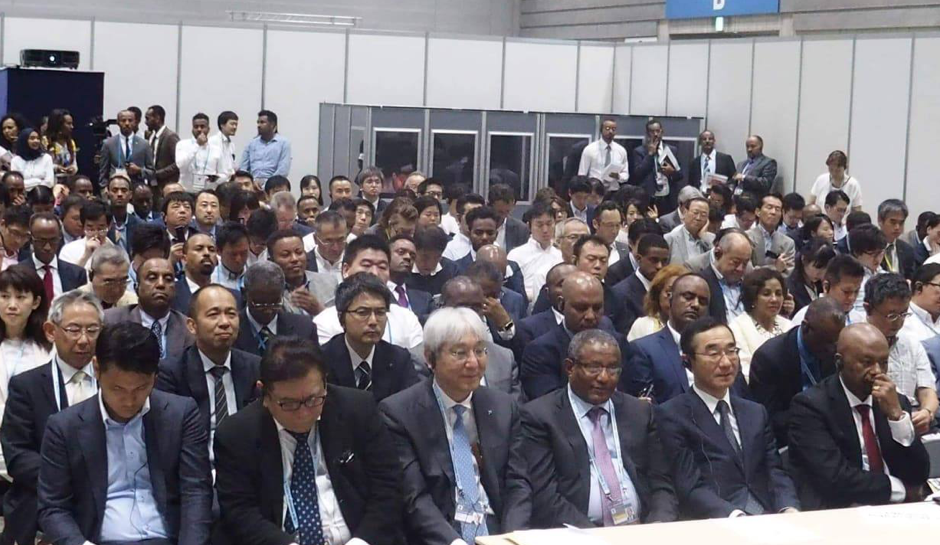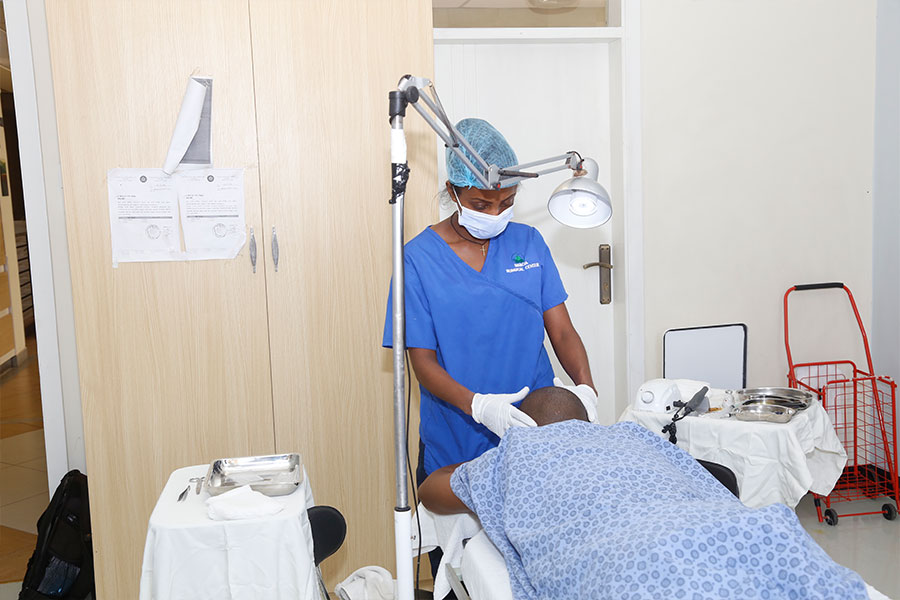
Featured | Dec 14,2019
Coffee roasters plead for a solution to the scarcity of "reject" coffee on the Ethiopian Commodity Exchange trading floors (ECX). Legislation makes the ECX the only place where roasters can source coffee deemed unsuitable for the international market.
Roasters are complaining that the unavailability of "rejected" coffee, low quality and high prices at the Exchange have affected their business, pushing up prices of coffee on the domestic market. Packaged roasted and ground coffee retail for 400 and 960 Br a kilogramme depending on quality and brand. The prices doubled in the last four months. Prices for a cup of coffee at cafes and eateries have also been on the rise. Recently, well-known coffee joints have increased prices by as much as 35pc.
Coffee beans labelled rejects are classified into more than half a dozen grades.
Tomoca, the country's oldest coffee chain, has a kilogramme of its ground-coffee on sale for 960 Br, from 720 Br a few months ago. A cup of coffee at one of its branches goes for 37 Br, a 10 Br increase.
Smaller coffee shops have also seen prices jacked up by around 50pc to 15 Br for a cup.
The Ethiopian Coffee Roasters Association members say they are witnessing a severe scarcity in reject coffee on the ECX floor.
On rare occasions they find the beans, the coffees are the lowest of the eight quality grades, according to Menelik Habtu, president of the Association.
Most recent prices for low-quality, washed coffee hover around 230 Br a kilo, while high-quality beans for the export market are on sale for slightly less than the rejected coffee.
Last week, roasters met with ECX officials. Wondimagegnehu Negera, chief executive officer (CEO), blamed a shortage in the supply of "reject" coffee on the trading floor. ECX officials claimed supply has been growing over the past few days, though they conceded it is insufficient to meet the demand. They also say they are working to address quality issues brought up by roasters.
Not enough is coming to the ECX to trade for local consumption, reads the Exchange's statement.
The volume of "reject" coffee that makes it to the trading floor is around a third of the exported volume. Over the past eight months, 180,000tn of coffee was shipped abroad; around 60,000tn of "reject" coffee should have been traded at the Exchange. Though figures are hard to come by, roasters say this figure is nowhere close to what was sold for them. Last year, close to 100,000tn of coffee was traded through the ECX for domestic consumption.
“Most roasters work at less than half their previous performances,” said Menelik, who represents 90 of the 200 roasters in business.
Menelik runs his own coffee roasting company, Typica Coffee, where he serves as general manager overseeing 20 staff. Last year, his company processed nine tonnes of "reject" coffee for the local market. Though he is uncertain what the remaining months of the financial year will bring, he is confident the volume is bound to reduce sharply in the next few months.
Shafi Omer, deputy director of the Ethiopian Coffee & Tea Authority, contends the shortages result from the record-high export volumes the industry has been enjoying since last year. Ethiopia shipped 248,000tn of coffee, generating 854 million dollars, a 17.4pc increase from the preceding year. Over the first eight months of this financial year, coffee exports brought in nearly 750 million dollars.
The Authority targets a little over one billion dollars in export revenues. The growth shows that all types and quality levels of coffee are exported, according to Shafi.
"The most important thing here is the opportunity for forex income,” Shafi said. “We'd even like to double the exports to better the country’s economy.”
Claims that exporters trade the "reject" beans illicitly instead of through the ECX pushed the Authority to issue a stern notice to exporters a few weeks ago, warning them to bring the "reject" coffee to the Exchange's trading floor.
Tewodros Assefa, general manager of Eliana Coffee, a roaster, is not convinced of the claim that rising exports are behind the shortages. He has been in the coffee trade for over a decade. His company was one of the roasters that complained to the Authority and the ECX officials. He believes the scarcity of "reject" coffee comes down to disputes between the Exchange and the Authority and illicit trade.
There is a considerable contraband market of coffee, Tewodros claims.
“Most roasters are on the verge of closing,” he said.
Tewodros finds it challenging to keep payroll for over 20 employees at Eliana. For eight years, the company has supplied coffee to the Grand Ethiopian Renaissance Dam (GERD) project, supplying 2,000Kg a month. Declining supplies have pushed the figure down to around 300Kg.
Other clients, such as the Ethiopian Red Cross Society, receive around a fifth of the 100Kg they buy. Eliana has also ceased supplying to supermarkets.
“There are always unmet orders,” Tewodros told Fortune.
Anwar Mohammed, a consultant specialising in the commodity market, is baffled by the roasters' complaints. He says it is unreasonable to expect high-quality "reject" beans. He argues that the larger export volumes are, the fewer to find low-quality products in the market.
Gizat Worku, a coffee exporter and general manager of the Ethiopian Coffee Exporters Association, says the Authority ought to facilitate ways such as the vertical integration model to solve the issues.
Roasters can also source good quality coffee either for export or the local market, but they visit the Exchange to source the export reject coffee, says Gizat.
“They shouldn’t depend on the reject coffee only,” he said.
Gizat told Fortunethe shortages could also result from alleged speculation and hoarding by exporters.
Among the largest coffee consuming countries globally, Ethiopia produces over 600,000tn of coffee annually. Industry players say the shortages could come down to increased domestic consumption. Around 60pc of the coffee produced is consumed locally. Officials see the high demand positively, serving as a fallback market if the global market faces disruptions or sees prices fall.
“If we weren't coffee consumers like some other African coffee-producing countries, it would be a disaster for the farmers when the international market drops,” Shafi said.
The Authority is undertaking initiatives to boost productivity as a viable solution to meet domestic and international demands. Cluster farming projects have been kicked off in the Oromia Regional State.
PUBLISHED ON
Apr 02,2022 [ VOL
23 , NO
1144]

Featured | Dec 14,2019

Fortune News | Aug 31,2019

Exclusive Interviews | Apr 19,2025

Fortune News | Apr 16,2022

Featured | Jan 03,2021

Dec 22 , 2024 . By TIZITA SHEWAFERAW
Charged with transforming colossal state-owned enterprises into modern and competitiv...

Aug 18 , 2024 . By AKSAH ITALO
Although predictable Yonas Zerihun's job in the ride-hailing service is not immune to...

Jul 28 , 2024 . By TIZITA SHEWAFERAW
Unhabitual, perhaps too many, Samuel Gebreyohannes, 38, used to occasionally enjoy a couple of beers at breakfast. However, he recently swit...

Jul 13 , 2024 . By AKSAH ITALO
Investors who rely on tractors, trucks, and field vehicles for commuting, transporting commodities, and f...

Oct 11 , 2025
Ladislas Farago, a roving Associated Press (AP) correspondent, arrived in Ethiopia in...

Oct 4 , 2025
Eyob Tekalegn (PhD) had been in the Governor's chair for only weeks when, on Septembe...

Sep 27 , 2025
Four years into an experiment with “shock therapy” in education, the national moo...

Sep 20 , 2025
Getachew Reda's return to the national stage was always going to stir attention. Once...